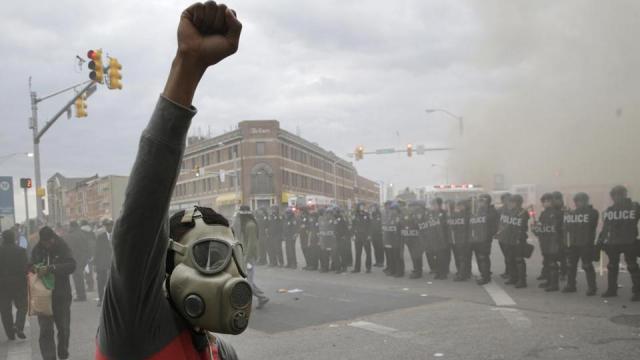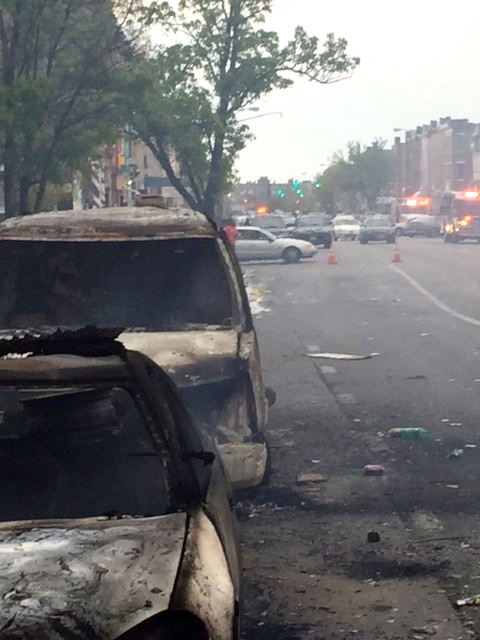
BALTIMORE — With sirens wailing from blocks away in all directions, and helicopters whirring overhead, Baltimore spent Monday preparing to burn.
From his stoop on West North Avenue, Deron Martin could see officers and young protesters facing off in the middle of the street about a quarter-mile away.
Behind them were the smoldering remains of the intersection of West North and Pennsylvania avenues, an important intersection in the struggling neighborhood of West Baltimore. Only hours earlier, there had been a CVS store, a Subway restaurant, a check-cashing business and a few other small shops near the bus stop there.
They were all gone now, consumed by flames. And perhaps the anger of neighborhood youth.
Their anger surged shortly after the funeral of Freddie Gray, a 25-year-old black man who died on April 19 — a week after he somehow suffered a major spinal cord injury while in Baltimore police custody. The violence in Baltimore is a dreadful echo of the unrest in Ferguson, Missouri that followed the killing of Michael Brown, an unarmed black man, at the hands of Darren Wilson, a white police officer who said he acted in self-defense. Since then, the killings of unarmed black men across the country have sparked a nationwide movement protesting what they see as excessive force by police. On Monday in Baltimore, that frustration with police boiled over into violence.
“It’s from years and years of taking shit,” said Martin, a longtime resident and a cook at a nearby soul food restaurant. “Now we’re at a point where people just don’t give a fuck.”
This hopelessness — expressed by many young protesters in Baltimore — arose from frustration with a system that they believe has consigned them to police brutality, poverty and even poorer prospects. The streets were filled with children Monday, many of them fresh out of school and itching for a fight with police. By 4 p.m., around the time schools let out for the day, people were hustling out of office buildings and stores and restaurants were closing their doors to customers.
Fires burned around Baltimore as law enforcement agencies scrambled to keep contain the violence. Maryland Gov. Larry Hogan declared state of emergency, activating the National Guard. The Baltimore Orioles canceled their game against the Chicago White Sox. And at least 15 officers were injured as demonstrators threw rocks and bricks.
“Ain’t nobody scared of y’all,” shouted one teenage boy, wearing a blue hooded sweatshirt. “This is karma!”
3 WAYS TO SHOW YOUR SUPPORT
- Log in to post comments












